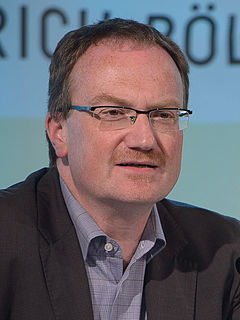A Quote by Simon Kuznets
Mass application of technological innovations, which constitutes much of the distinctive substance of modern economic growth, is closely connected with the further progress of science, in its turn the basis for additional advance in technology.
Related Quotes
For although there is not a single aspect of European growth in which the decisive influence of Islamic culture is not traceable, nowhere is it so clear and momentous as in the genesis of that power which constitutes the permanent distinctive force of the modern world, and the supreme source of its victory, natural science and the scientific spirit.
I believe economic growth should translate into the happiness and progress of all. Along with it, there should be development of art and culture, literature and education, science and technology. We have to see how to harness the many resources of India for achieving common good and for inclusive growth.
I believe economic growth should translate into the happiness and progress of all. Along with it, there should be development of art and culture, literature and education, science and technology. We have to see how to harness the many resources of India for achieving common good and for inclusive growth.
The paramount doctrine of the economic and technological euphoria of recent decades has been that everything depends on innovation. It was understood as desirable, and even necessary, that we should go on and on from one technological innovation to the next, which would cause the economy to "grow" and make everything better and better. This of course implied at every point a hatred of the past, of all things inherited and free. All things superceded in our progress of innovations, whatever their value might have been, were discounted as of no value at all.
Long-term economic growth depends mainly on nonmonetary factors such as population growth and workforce participation, the skills and aptitudes of our workforce, the tools at their disposal, and the pace of technological advance. Fiscal and regulatory policies can have important effects on these factors.
You can't just stop technological progress. Even if one country stops researching artificial intelligence, some other countries will continue to do it. The real question is what to do with the technology. You can use exactly the same technology for very different social and political purposes. So I think people shouldn't be focused on the question of how to stop technological progress because this is impossible. Instead the question should be what kind of usage to make of the new technology. And here we still have quite a lot of power to influence the direction it's taking.
If war can indeed be turned into a relic, then the virtue of greed will recede further. From a given society's standpoint, one big upside of wanton material acquisition has traditionally been the way it drives technological progress-which, after all, helps keep societies strong. In the nineteenth century, Russia ans Germany had little choice about modernizing; in those days stasis invited conquest. But if societies no longer face conquest, breakneck technological advance is an offer they can refuse, and frugality a luxury people can afford.
Inventive genius requires pleasurable mental activity as a condition for its vigorous exercise. "Necessity is the mother of invention" is a silly proverb. "Necessity is the mother of futile dodges" is much closer to the truth. The basis of growth of modern invention is science, and science is almost wholly the outgrowth of pleasurable intellectual curiosity.




































